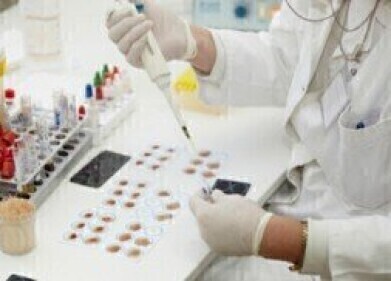Help Desk
Can Breastfeeding Help to Prevent Type 1 Diabetes? — Chromatography Explores
Jun 19 2017
Researchers in Finland have found a link between omega-3 fatty acids consumed by infants through breast milk and a reduced risk of getting type-1 diabetes. The study published in the journal Diabetologia — suggests that fatty acid consumption during infancy is related to type 1 diabetes autoimmunity.
Although diabetes diagnosis is on the increase — much of the increase is due to a modern lifestyle leading to an increase in type-2 diabetes. But does breastfeeding reduce the risk of contracting type 1 diabetes?
Type 1 diabetes — the body fights itself
Much has written in the media regarding the increase in diabetes particularly in people with a poor lifestyle. But this usually refers to type 2 diabetes — formerly known as adult-onset diabetes because it was usually the preserve of middle-aged people, but the incidence of type 2 diabetes in children is also increasing alarmingly. And it is true that over 90% of the people classed as having diabetes in the UK are of type 2, but there is another type of diabetes — which has nothing to do with lifestyle.
Type 1 diabetes used to be known as juvenile onset diabetes — because the symptoms usually developed in childhood and has nothing to do with being overweight. Type 1 diabetes is an autoimmune disease — this means that the body basically attacks itself. In the case of type 1 diabetes, the immune system attacks the insulin producing beta cells in the pancreas. This continues until the pancreas cannot produce insulin.
Therefore, people with type 1 diabetes must inject themselves with insulin — they have no means of producing enough insulin themselves. They are classed as insulin dependent. The condition is often detected in childhood — in fact, the organisation Diabetes UK estimates that of the 31,000 children in the UK with diabetes, around 95 per cent of them have type 1 diabetes.
Fish oils in pregnancy to protect against type 1?
The Finnish team tested their hypothesis that fatty acid status in infants is related to type 1 diabetes autoimmunity and that long chain fatty acids can reduce the risk of developing type 1 diabetes. The study used gas chromatography to analyse the serum total fatty acids composition from 240 babies who had islet autoimmunity (a condition that occurs before type 1 diabetes symptoms develop) with 480 control children.
Chromatography is a rapidly developing tool used by researchers. But, method developers must make sure their methods are fit for purpose — a topic discussed in the article, Developing Robust Chromatographic Methodologies.
The researchers found that fatty acid content differed between breastfed and non-breastfed infants, and the difference reflected the differences in the fatty acid content of the milk. They report that: ‘Fish-derived fatty acids may be protective, particularly during infancy. Furthermore, fatty acids consumed during breastfeeding may provide protection against type 1 diabetes-associated autoimmunity.’ But further studies are required to confirm the results.
Events
May 11 2025 Vienna, Austria
May 18 2025 Tempe. AZ, USA
May 21 2025 Birmingham, UK
Jun 01 2025 Baltimore, MD, USA
Jun 15 2025 Bruges, Belgium














